Octlantis: See photos of tight-knit gloomy octopus communities
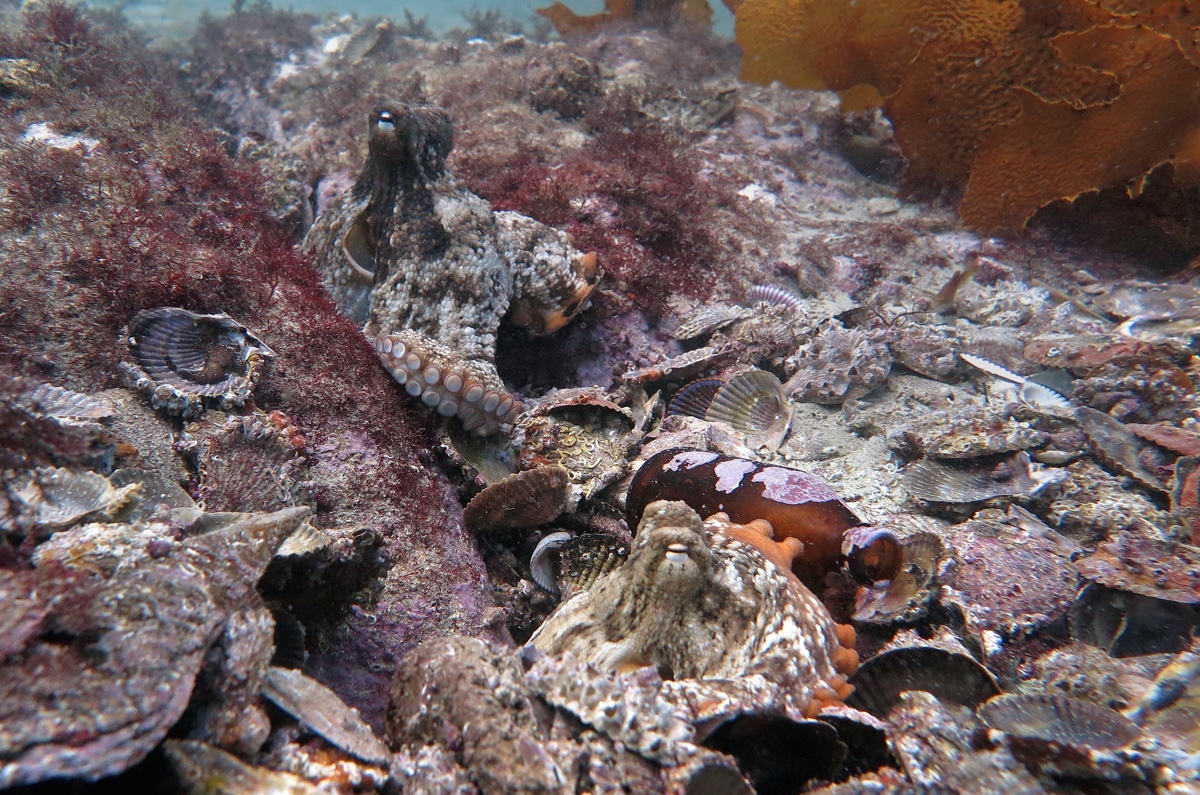
Enter Octlantis
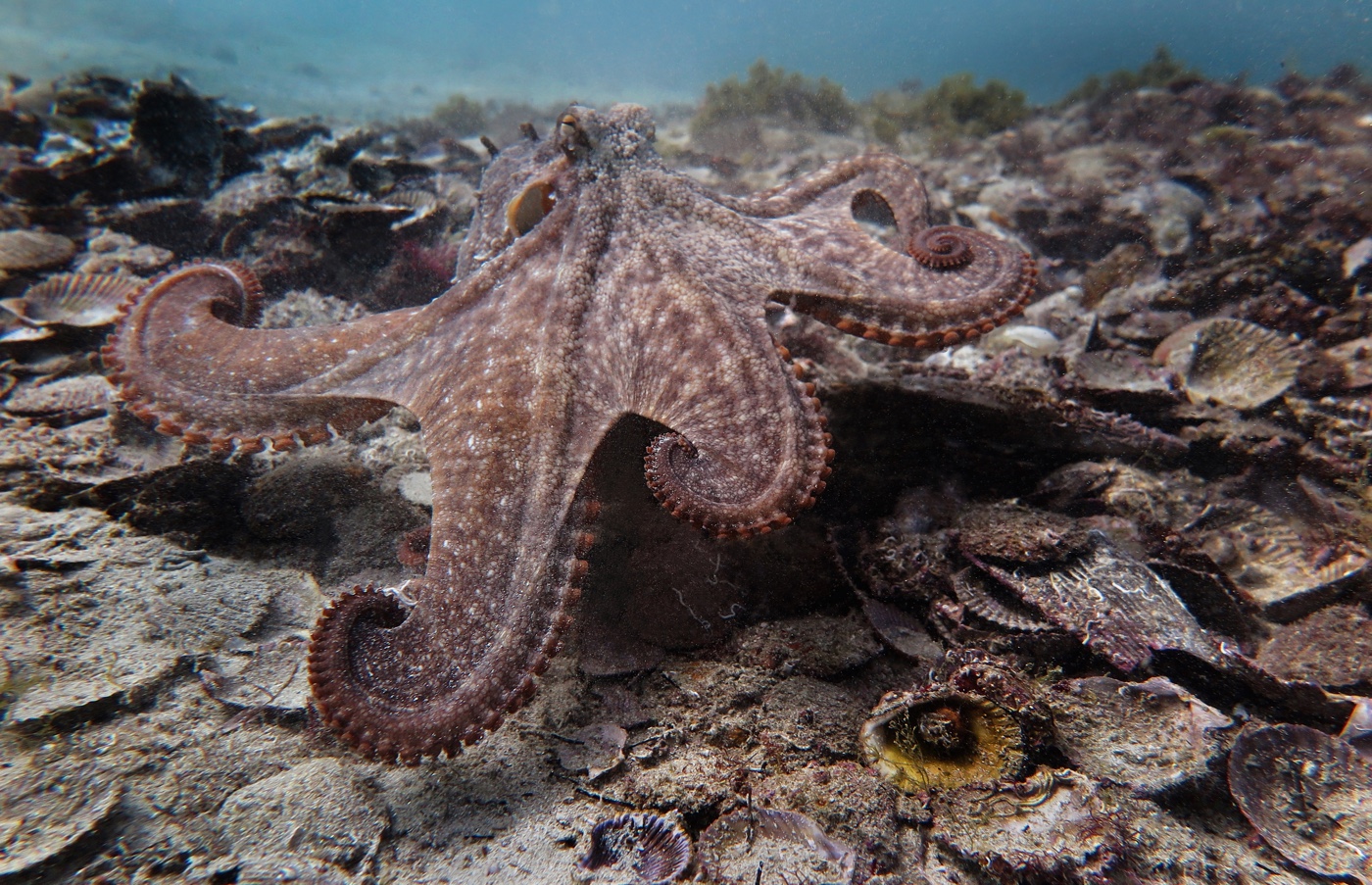
The gloomy octopus (Octopus tetricus) is usually a solitary species. But at two sites now, researchers have discovered gloomy octopuses living in high densities and interacting with one another in Jervis Bay in Australia. From mating to signaling to evicting one another from dens, these octopuses were found living in what the scientists have nicknamed an Octlantis. Here's a look at one of the close-knit cephalopod sites.
Related: Read the full story on Octlantis
Cephalopod community
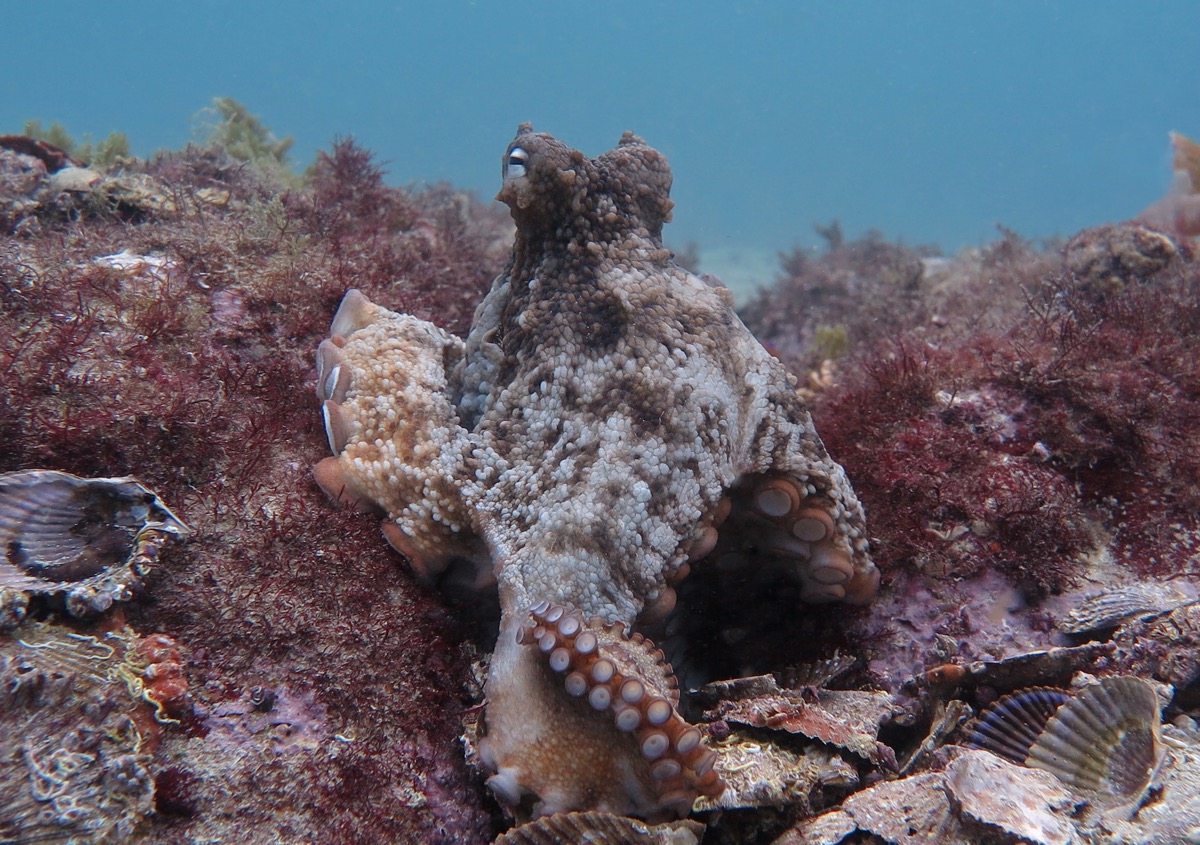
Finding a second site where the gloomy octopuses were interacting suggests such social behaviors are more widespread among octopuses than previously believed, the researchers said.
Diving for octopus
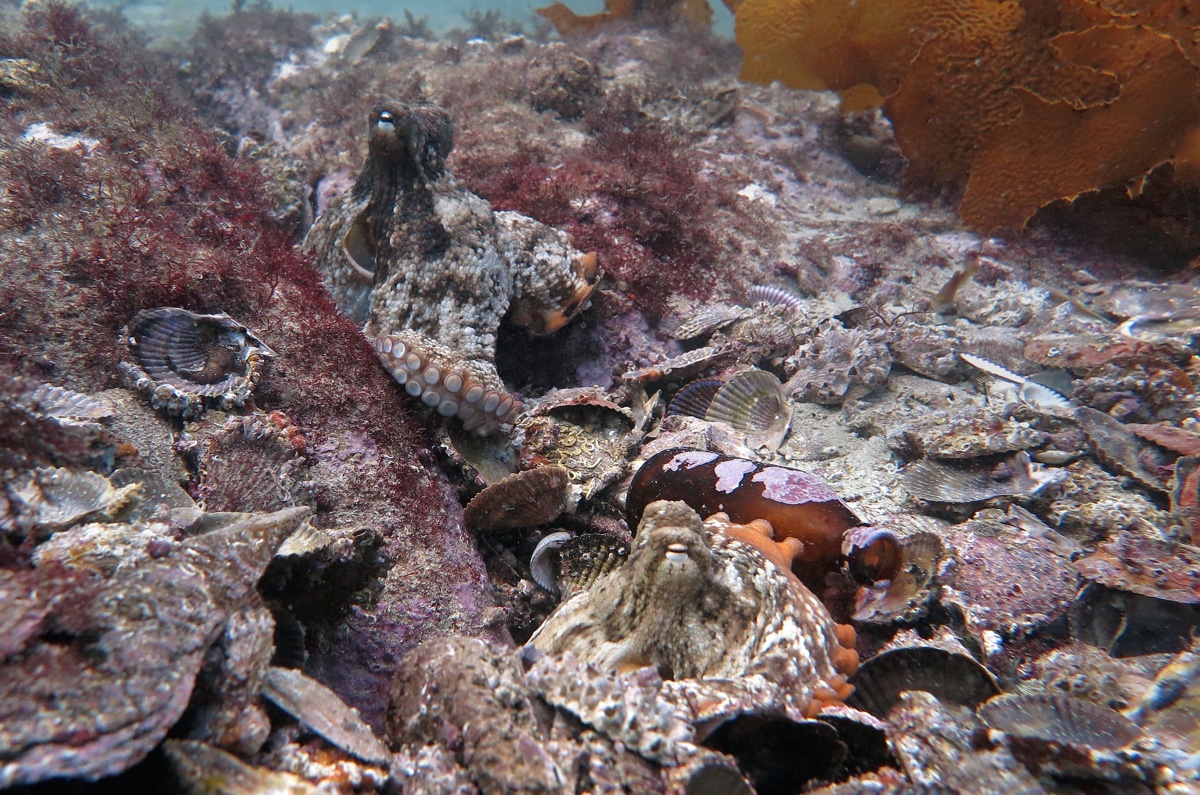
The divers visited the site in Jervis Bay, Australia, on eight different days between Dec. 17, 2016, and Jan. 14, 2017. They counted as few as 10 and as many as 15 individual octopuses at the site. And those octopuses in a cluster of dens "were often within arms' reach of one another," the researchers noted in their paper, published online Sept. 1, 0217, in the journal Marine and Freshwater Behaviour and Physiology.
Outa here
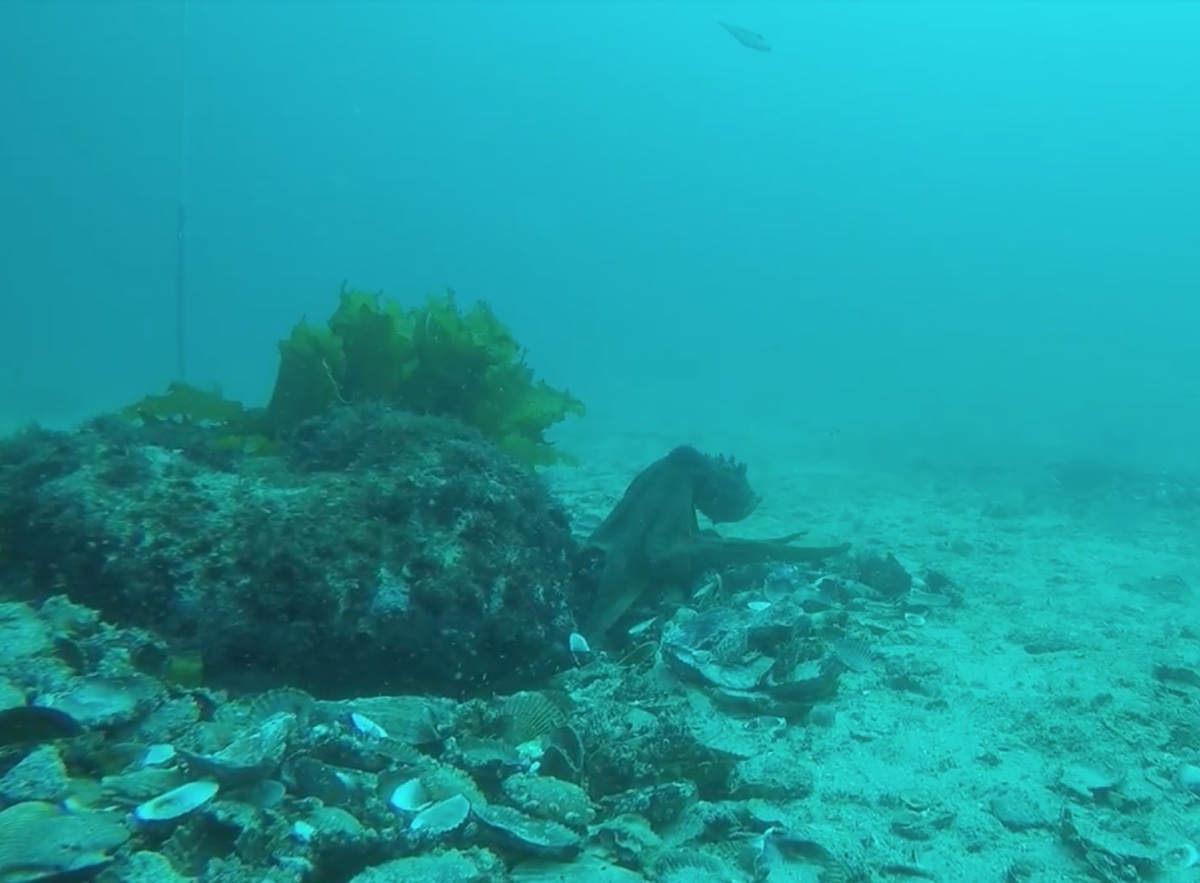
In one video taken by the researchers, an octopus approached a cluster of dens, reached into one and evicted the resident of that den.
Male suckers
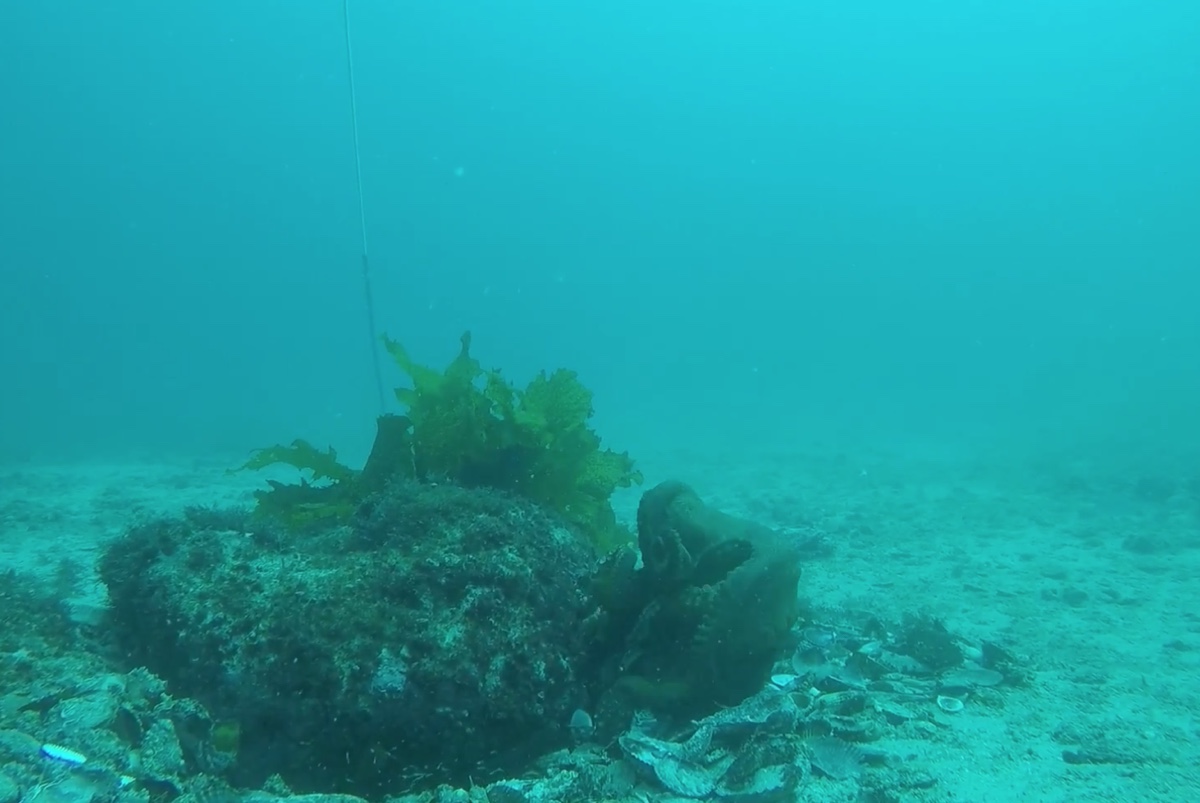
The evictor and evictee both showed oversized suckers on their first two pairs of arms, suggesting they were both males, the researchers said.
And again
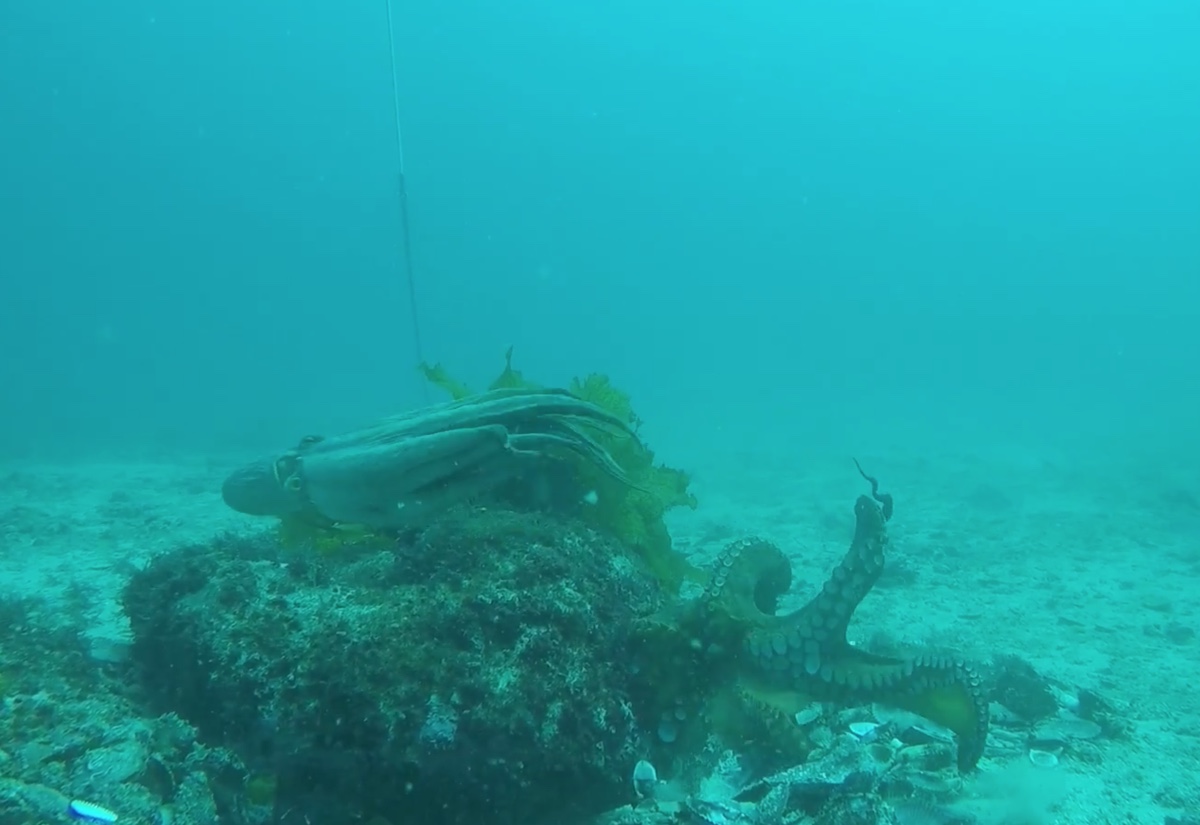
The evicted octopus fled to a cluster of dens at the east end of Octlantis and settled into a den there. Just minutes later, the researchers saw that Octopus "D" swam to that part of the site, right up to the den of the evictee and again evicted that octopus from its den.
Shark sighting
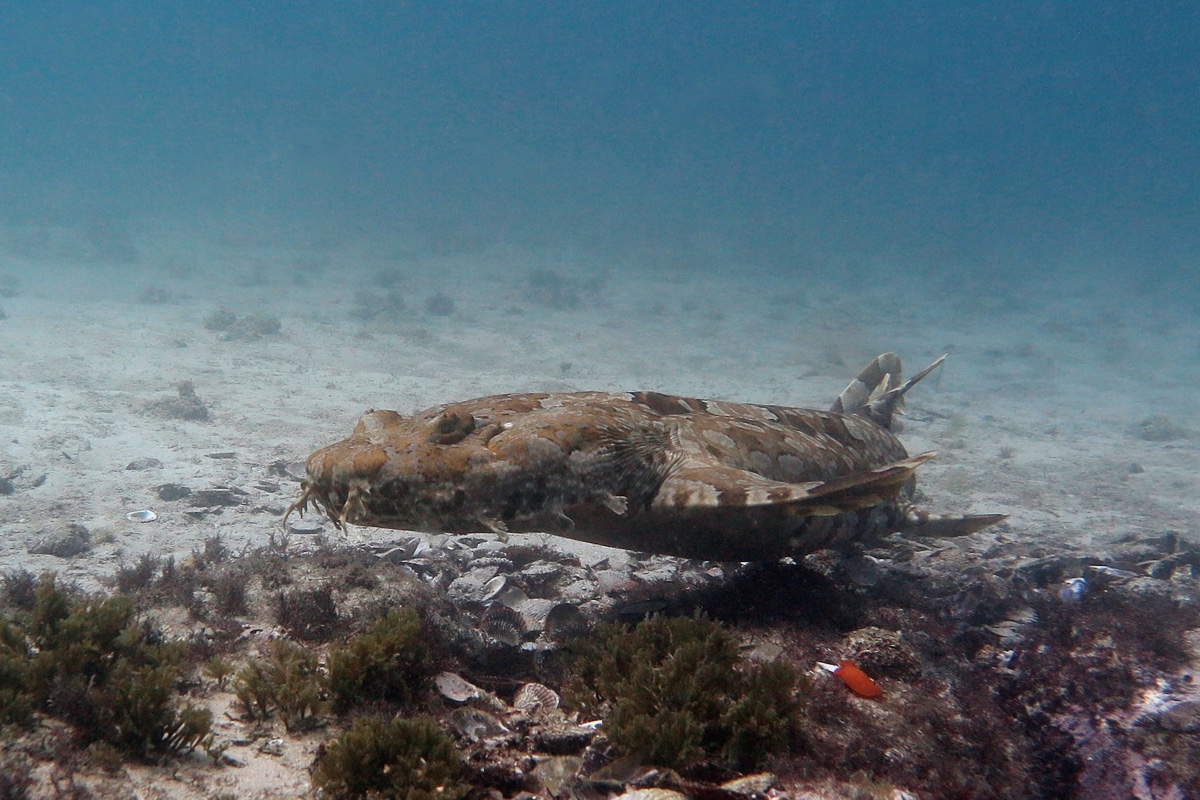
A similar interaction played out in video recorded when the researchers weren't present at the site. In that scenario, an octopus (labeled "D") evicted another (labeled "C") from its den and then spent 40 minutes guarding the den and keeping other octopuses from entering or occupying it.
Because octopus D was busy guarding this stolen den, he was away from his own den for some time. "In addition to substantial time investment, energy expenditure, and risk of injury, activity outside of their dens also exposes octopuses to risks from predators," they wrote. And sure enough, a wobbegong shark (shown here) arrived at the site after the interactions between octopus D and others.
Eviction notice
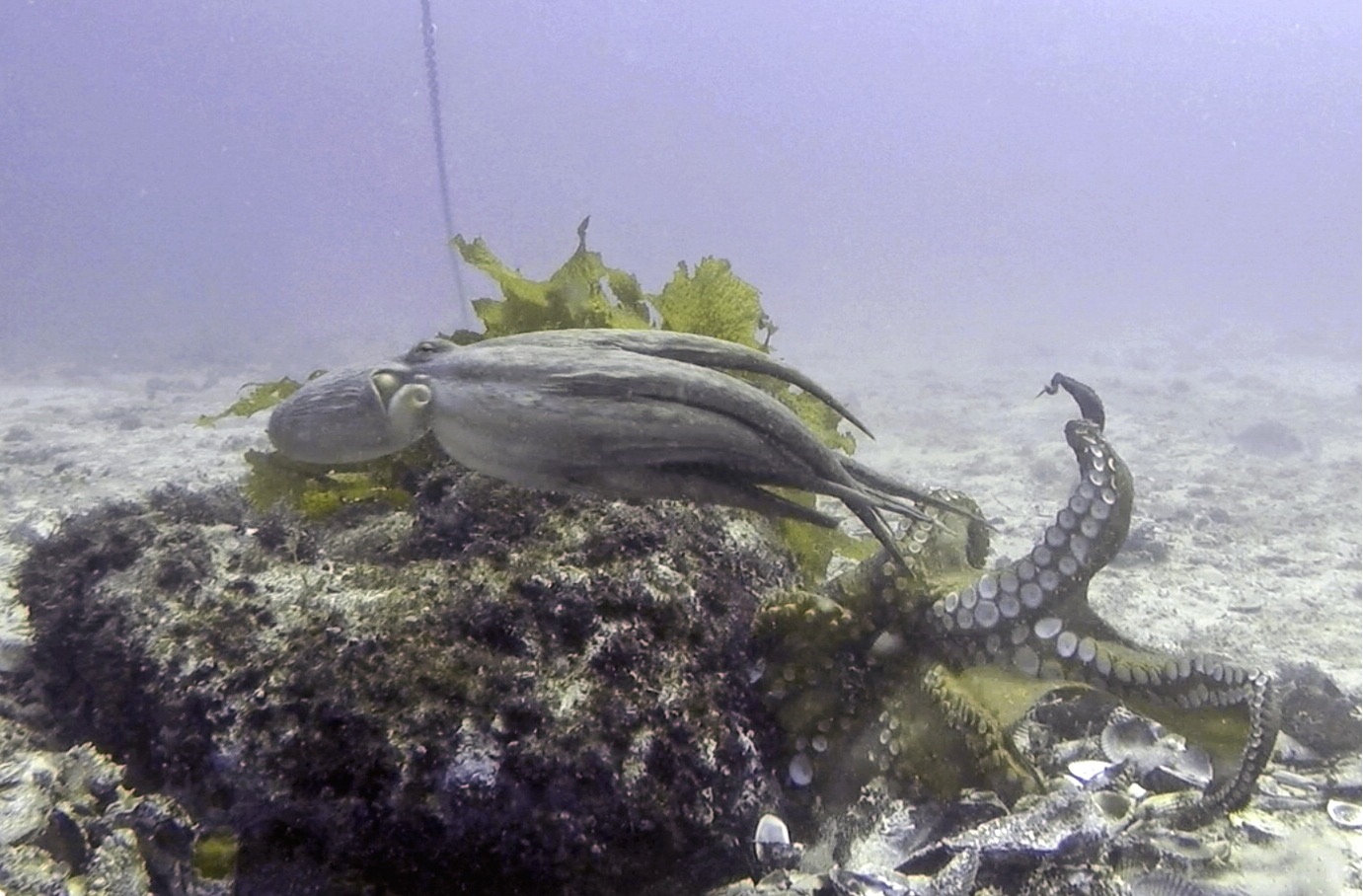
Another look at a male gloomy octopus evicting another from its den in Octlantis. [Read the full story on Octlantis]
Sign up for the Live Science daily newsletter now
Get the world’s most fascinating discoveries delivered straight to your inbox.
Jeanna Bryner is managing editor of Scientific American. Previously she was editor in chief of Live Science and, prior to that, an editor at Scholastic's Science World magazine. Bryner has an English degree from Salisbury University, a master's degree in biogeochemistry and environmental sciences from the University of Maryland and a graduate science journalism degree from New York University. She has worked as a biologist in Florida, where she monitored wetlands and did field surveys for endangered species, including the gorgeous Florida Scrub Jay. She also received an ocean sciences journalism fellowship from the Woods Hole Oceanographic Institution. She is a firm believer that science is for everyone and that just about everything can be viewed through the lens of science.










